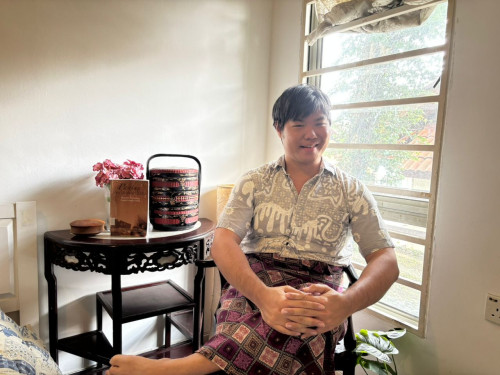QUOTE(rooney723 @ Nov 25 2025, 03:59 PM)
most of the peranakans or baba nyonyas in penang, melaka or singapore are actually very sinicized already and should be considered as chinese more than peranakans, u can just see it from their faces lol, most of them just look like normal chinese, because last time during their forefather days, many baba nyonya families took in wives from china and they married pure chinese instead of malay or other races during that time
their 1st generation indeed marry malay wives and they have malay ancestors but thats only for the 1st gen, the following generations after that are mostly marrying pure chinese already, thats why until now they can maintain their chinese looks even after so many generations
u want to see the real peranakans, look at the terengganu and kelantan peranakans(mixed with siamese), they look more like siamese ppl than chinese, or the cina benteng in indonesia that look more like indon than chinese ppl
Baba Nyonya does not refer to Chinese-Malay mix. Read up the history of why the word was even used. Baba was used to refer to Chinese men and Nyonya was used to refer to foreign woman. So how can they be from "Malay lineage" if both terms specifically refer to foreigners?
I don't know where this idea come from that Peranakans or Baba Nyonya means must have mixed ancestry.
Also, FYI, a Chinese+Malay mix does not make you Peranakan or Baba Nyonya. If today a Chinese marry a Malay, that doesn't make them Peranakan.
Peranakan solely refers to
early settlers of Chinese folks, the first wave of Chinese migration. Because they settled here very early on, they adopted a lot of Malay culture specifically food, language, clothes, etc, but they don't necessarily have to. It has nothing to do marrying Malay woman (or men), but some do intermarry, but MOSTLY they do not. Go look at every photos of Peranakan taken from today or 100 years ago, they all have typical Cina face.
The children of these early Chinese settlers (aka Baba Nyonya) are called Peranakan, hence why the word "anak" in it. Hence all their descendants are also Peranakans. That's all. There's no special requirement of mixed ancestry or lineage or whatever, but it may existThis post has been edited by trojandude: Today, 01:29 AM 

 Yesterday, 03:46 PM
Yesterday, 03:46 PM
 Quote
Quote


 0.0126sec
0.0126sec
 0.32
0.32
 5 queries
5 queries
 GZIP Disabled
GZIP Disabled